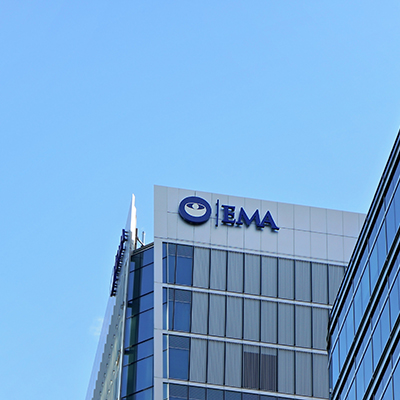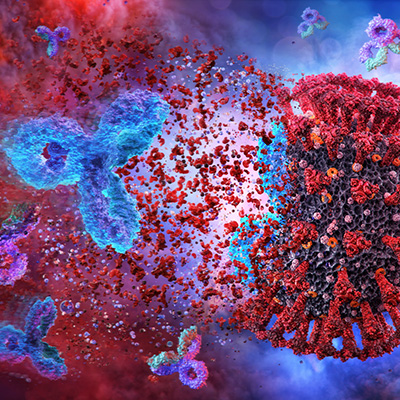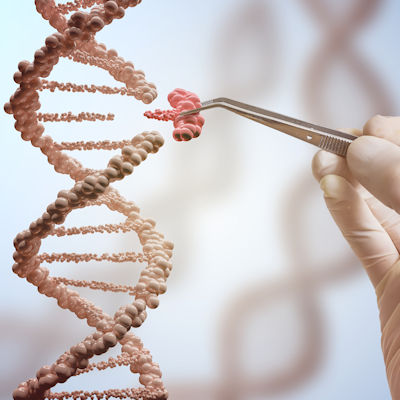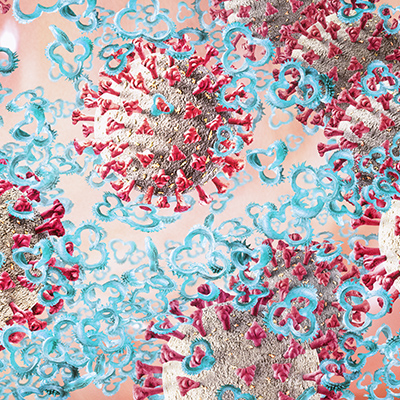February 9, 2021 -- The National Institutes of Health (NIH) has begun a new arm of its master protocol, the Accelerating COVID-19 Therapeutic Interventions and Vaccines 3 (ACTIV-3) study, which evaluates the safety and efficacy of an investigational long-acting antibody combination for the treatment of patients hospitalized with COVID-19.
The phase III substudy is investigating AZD7442, a long-acting antibody developed by AstraZeneca. The product is a combination of two long-acting antibodies, AZD8895 and AZD1061. Both are derived from convalescent patients after SARS-CoV-2 infection.
The antibodies were discovered by Vanderbilt University Medical Center and licensed to AstraZeneca in June 2020. The company further optimized the antibodies with increased half-life and reduced the fragment crystallizable (Fc) receptor binding. The company engineered the antibodies with its proprietary half-life extension technology. The final product should provide six to 12 months of protection from COVID-19, according to the company. Moreover, reduced Fc receptor binding minimizes the risk of a patient developing antibody-dependent enhancement of disease.
Preclinical data, published in Nature on July 15, showed that the antibodies block binding of SARS-CoV-2 to host cells in vitro and protected against SARS-CoV-2 infection in animal models.
While the investigational antibody treatment has the potential to function both as a treatment and a prophylactic for SARS-CoV-2, the ACTIV-3 trial, sponsored by the National Institute of Allergy and Infectious Diseases, part of the NIH, will only be testing its efficacy as a therapeutic.
The ACTIV-3 master trial is designed to test multiple different trials of experimental therapeutics simultaneously. In the study, the placebo group serves as a shared comparison group, thereby increasing the chance that participants will receive a therapeutic in the randomized trial.
The new substudy of AZD7442 is running concurrently with two other substudies. The first is evaluating VIR-7831, a SARS-CoV-2 monoclonal antibody developed through a partnership with GlaxoSmithKline and Vir Biotechnology. The second is evaluating the combination of BRII-196 and BRII-198, two SARS-CoV-2 neutralizing monoclonal antibodies manufactured by Brii Biosciences.
The participants will be hospitalized patients with mild-to-severe COVID-19 with fewer than 13 days of symptoms. They will randomly receive either a saline placebo control or one of the three experimental therapeutics. After five days, the participants' medical condition will be assessed.
If the outcomes of 150 participants after five days indicate that AZD7442 is likely to be both safe and effective, trial enrollment will be expanded to include an additional 700 participants. The increased pool of participants will allow researchers to more fully understand if the therapy can meet the trial's primary end point of sustained recovery from COVID-19.
Do you have a unique perspective on your research related to drug development or infectious diseases? Contact the editor today to learn more.
Copyright © 2021 scienceboard.net










